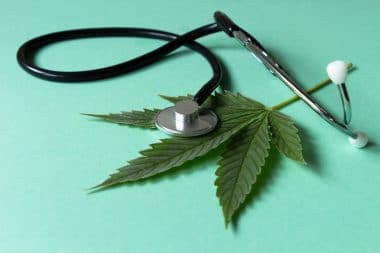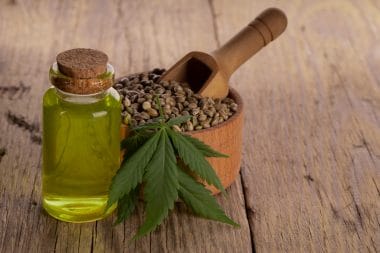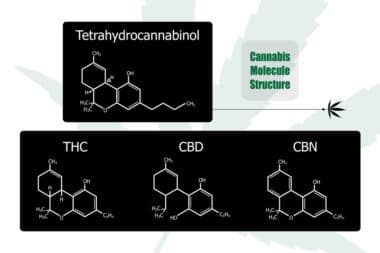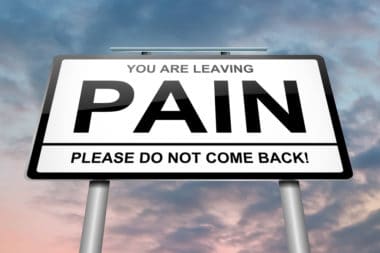Cannabidiol (CBD) is a medical supplement that has seen a sharp growth in popularity in the last few years. It began leading up to the 2014 Farm Bill that legalized hemp and CBD products with some restrictions. The 2018 Farm Bill removed most of these restrictions, and CBD was legal as long as it contained less than 0.3% THC.
For the longest time, hemp and CBD were stigmatized because of their association with marijuana. Up until the last decade, all forms of cannabis were either completely illegal or only legal for medical use. However, as more effort was spent legalizing marijuana and cannabis, a great deal of research went into the medical benefits it could provide. The driving force behind the legalization of CBD was the fact that it offered most of the same medical applications of marijauna, but could be made without THC.
Despite this, it’s important to remember that much of the medical research regarding the benefits of CBD is relatively new and continues to develop slowly. The popular appeal of CBD has quickly outpaced the actual studies to confirm what it is, how it works and what it can and can’t help with.
Anyone who is thinking of trying CBD should have a clear idea of what is fact, and what is still fiction. At the very least, it will keep you from wasting money on poor products, while also keeping you safe.
Fact: CBD Does Relieve Pain
One of the first known facts about CBD’s health benefits is its ability to relieve pain. It can also reduce inflammation, which can be a contributing factor for pain. It achieves this by interacting with the endocannabinoid system (ECS) in your body, which among other things regulates feelings of pain. When you take CBD, it signals your ECS to produce endocannabinoids. These are neurotransmitters that interact with your nervous system, so the sensations of pain become dulled.
In one study, rats with surgical incisions were given CBD injections to measure their pain response. It found that the mean pain threshold decreased by 65% at 24 hours after the incision was made. Since then, more studies have been held to show how CBD can help reduce pain and inflammation in people with acute pain, as well as chronic conditions like Multiple Sclerosis, arthritis, and fibromyalgia.
Fiction: CBD Makes You High
The negative stigmatization of CBD was because of its association with marijuana. CBD is one of many cannabinoids that are found in cannabis plants. The other widely known cannabinoid is THC, which is the psychoactive compound in marijauna that makes you feel high, but CBD by itself does not make you feel high at all.
CBD can be extracted both from hemp, a plant in the cannabis family with marijuana, and from marijuana. You can get CBD in hemp flowers or extract it into CBD oil drops. The confusion that still exists around CBD is that while you can get CBD-only products that contain no THC, you can also get varieties that contain both CBD and THC. In fact, there are reasons to use both as for various medical reasons they enhance some of each other’s properties. However, if you want to avoid any THC out of fear or on principle, you can rest assured that CBD by itself does not make you high.
Fact: CBD Helps Reduce Cancer Symptoms
One of the first medical exclusions for legal marijuana use was for people who had cancer. It helped with things like relieving pain and nausea from the condition and from the effects of radiation treatments. The same properties hold true for CBD. One study into how cannabinoids could impact vomiting and nausea in general found that “The primary non-psychoactive compound in cannabis, cannabidiol (CBD), also suppresses nausea and vomiting within a limited dose range.”
There are also some signs from early studies that could indicate that CBD could also have anti-cancer properties to aid in treatments. It has been tested in test tubes in a lab environment, where concentrated amounts of CBD killed human breast cancer cells. It has also been used to slow the growth of breast cancer cells in mice in another study. The anticancer properties of CBD are still new, and have not yet been confirmed as fact.
Fiction: CBD Treats Addiction
If you look up potential addiction treatments, whether it’s for alcohol or any type of drugs, you may come across a new kind of treatment that uses CBD. Some may claim that CBD helps people overcome their addiction. There are two issues with such claims, at least for now. The first is that there has been no formal study that shows how CBD can on its own can help people with addiction. The second is that CBD can be used on people rehabilitating from an addiction during their withdrawal phase.
Addiction withdrawal is a dangerous phase. Depending on the substance a person was addicted to and how long they abused it, it can be fatal. Severe pain, hallucinations, nausea, anxiety, and heart issues, suicidal thoughts, and organ failure so on are some of the worst symptoms of withdrawal.
Since CBD can help with pain, nausea and anxiety, it is used by some addiction recovery centers to mitigate the worst of the withdrawal symptoms, but that’s all the factual information we have for now.
Fact: CBD Does Improve Mental Health
Anxiety and stress has become a large issue in the public consciousness. Many people seek help through therapy and/or take prescription medication to relieve or manage their mental health.
Unlike THC, which can actually make anxiety worse, CBD has been found to decrease levels of stress, anxiety and sleep deprivation. It’s not fully clear how it does this, but there are studies that back this up. One study showed that CBD was able to treat insomnia and anxiety in children who were diagnosed with PTSD. Another noted how CBD had antidepressant effects in a study of mice.
One theory is that CBD interacts with certain receptors of your brain that are found in your central and peripheral nervous systems. We don’t fully understand how those receptors work either, but it is believed that they affect your serotonin levels. Serotonin is another neurotransmitter like endocannabinoids, but it affects your mental health. Low levels of serotonin have strong connections with depression and anxiety.
Summary
While research on CBD has grown a lot in the past decade, you should be wary of certain claims about what it can or can’t do. While CBD has certain known properties, some people may try and infer certain medical applications of it before there is any actual research to confirm it. If you are interested in trying CBD for medical reasons, especially if you want to use it as an alternative to prescription medications, make sure you talk with your doctor beforehand.








Reply